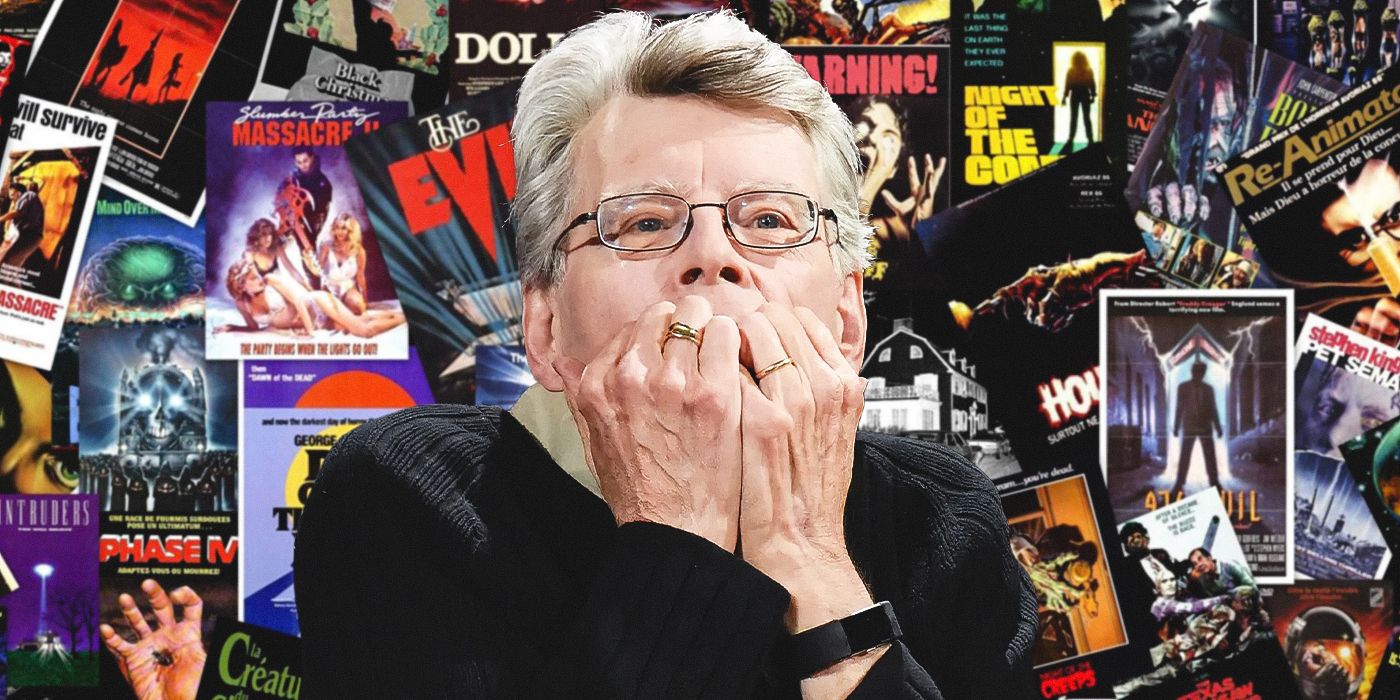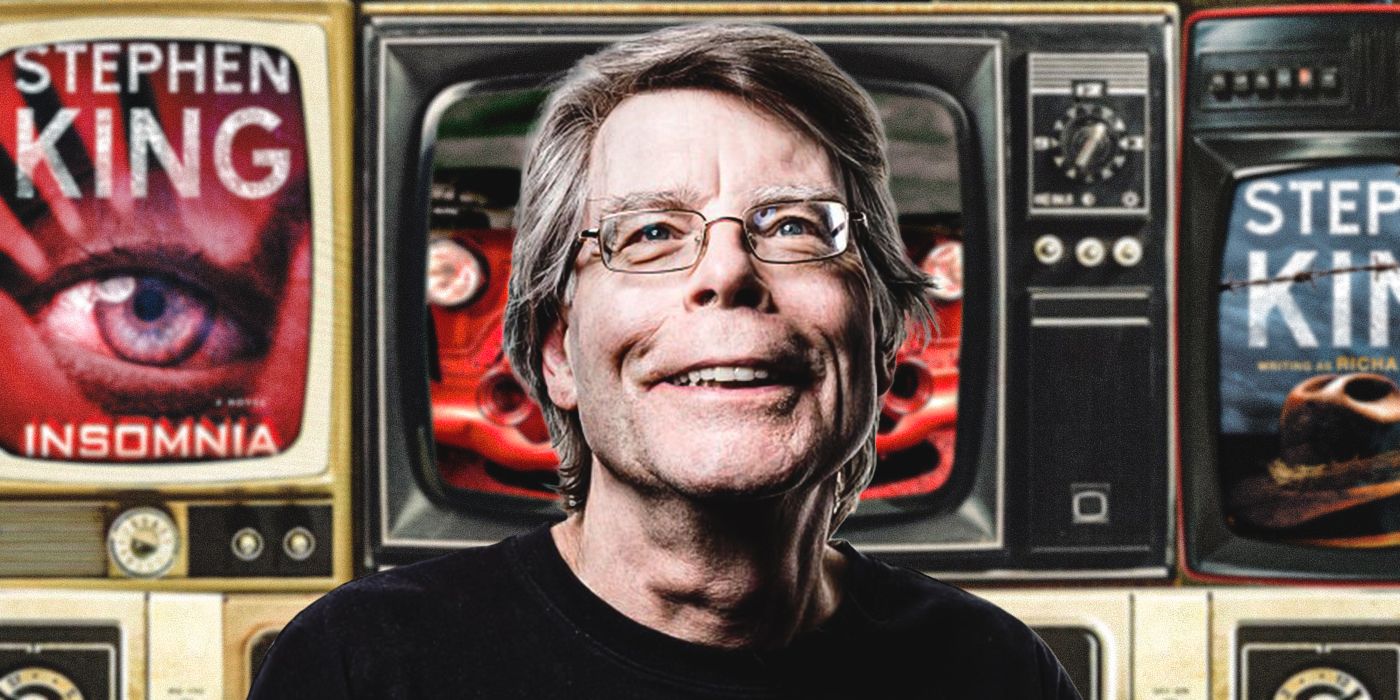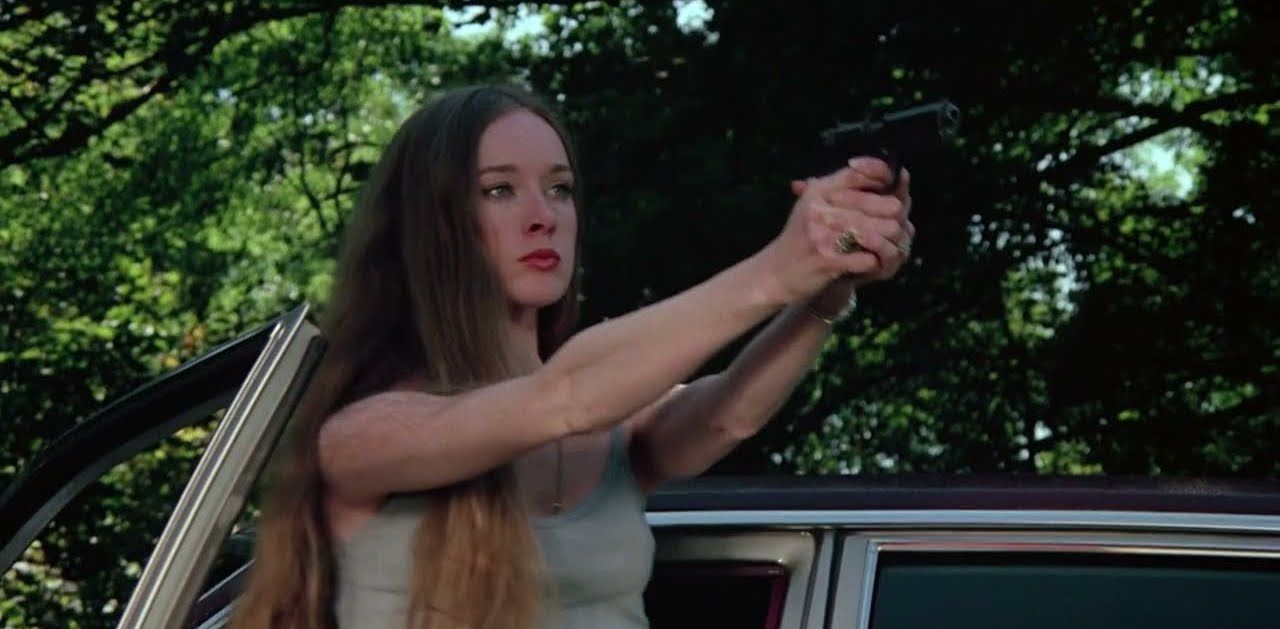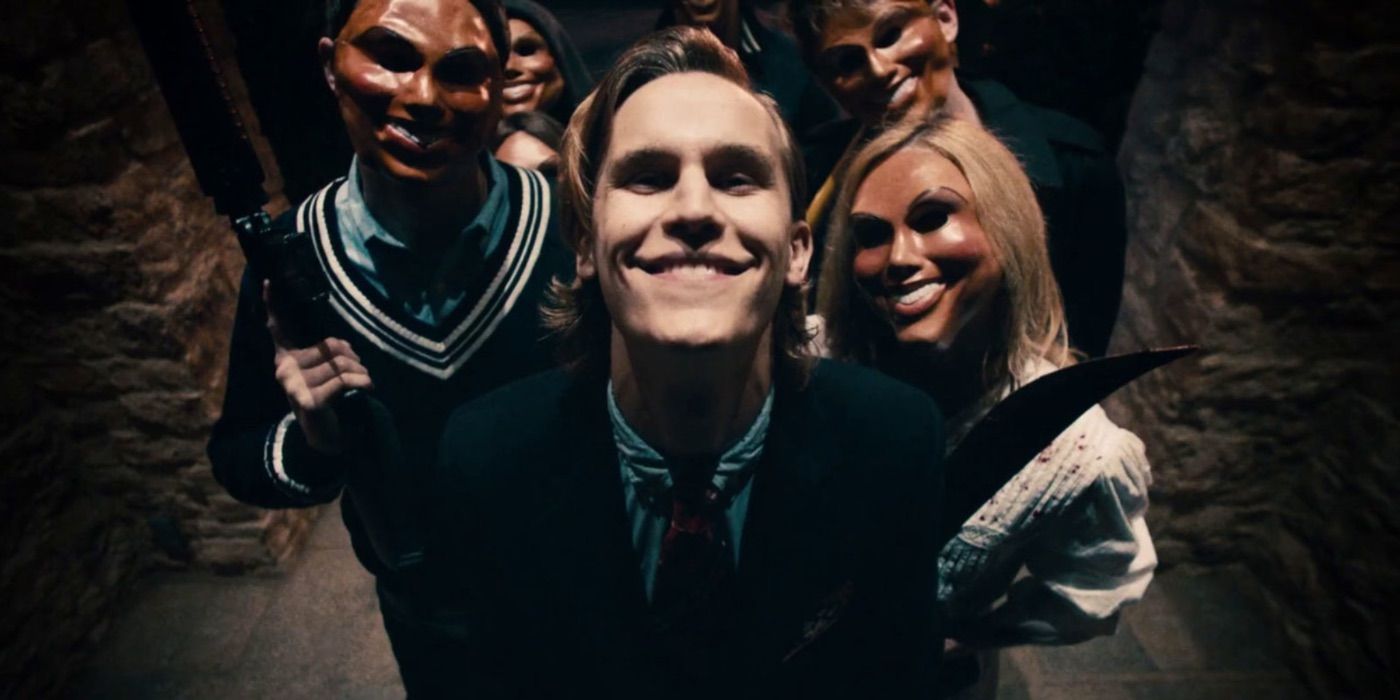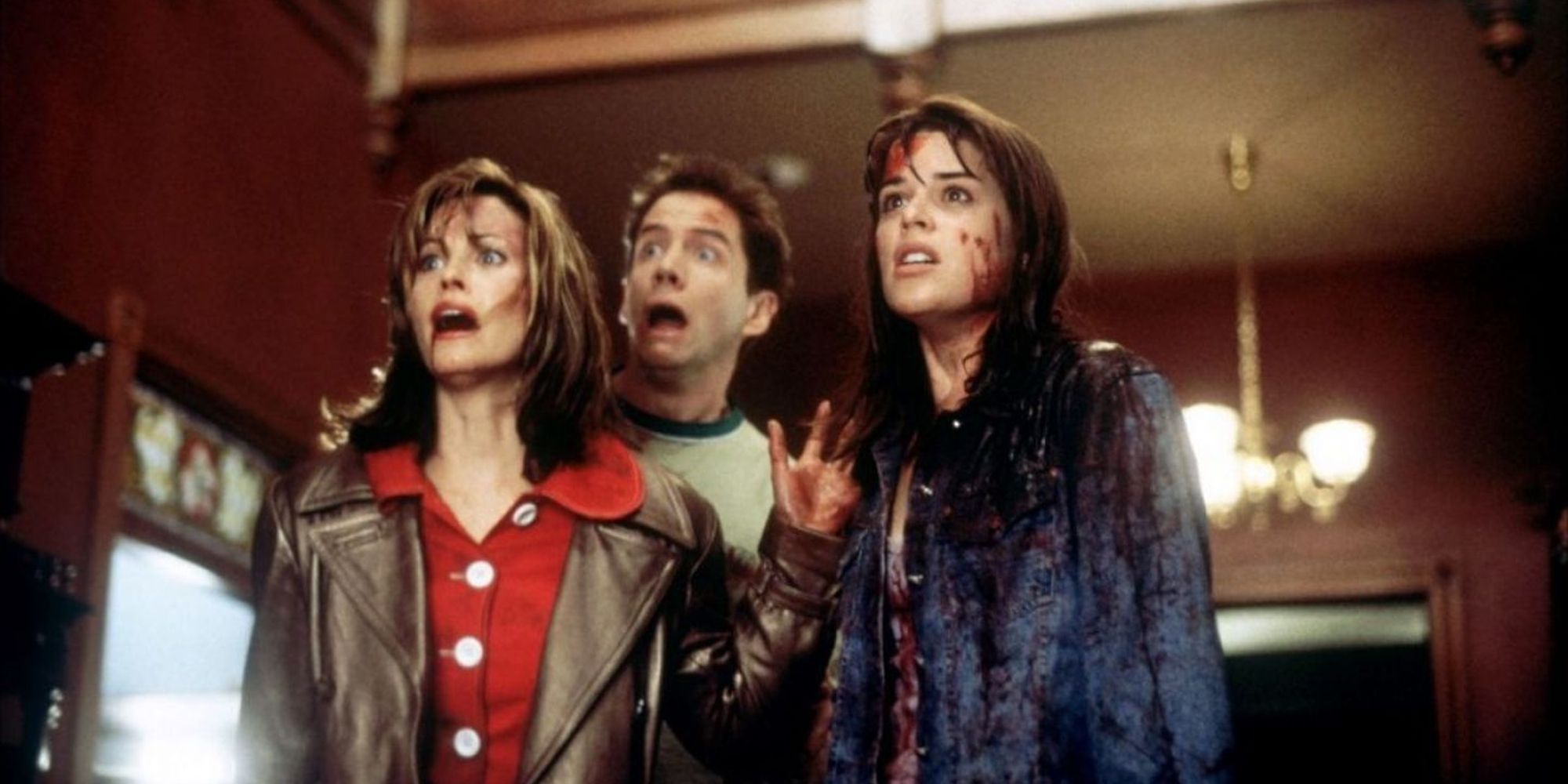Stephen King and horror are synonymous. Are you really able to call yourself a fan of horror if one of his novels or film adaptations isn't among your top favorites? The Maine-born writer is hands down the most successful horror writer and one of the most beloved and prolific writers ever whose legacy spans generations. Without King, we might not be as terrified of clowns and or think twice about bullying the shy girl in school. One could say that King has earned the moniker, "the King of Horror." In addition to all he's written, King has also had over 60 adaptations of his work for television and the big screen and has written, produced, and starred in films and shows as well. He has fully immersed himself in the genre of horror from all sides, and it's unlikely that we will ever have anyone else like Stephen King. But did you know that King wrote an essay that was published in Playboy magazine about horror movies?
In 1981, King's essay titled "Why We Crave Horror Movies" was published in Playboy magazine as a variation of the chapter "The Horror Movie As Junk Food" in Danse Macabre. Danse Macabre was published in 1981 and is one of the non-fiction books in which that wrote about horror in media and how our fears and anxieties have been influencing the horror genre. The full article that was published is no longer online, but there is a shortened four-page version of it that can be found.
Stephen King Believes We Are All Mentally Ill
The essay starts out guns blazing, the first line reading "I think that we're all mentally ill; those of us outside the asylums only hide it a little bit better." From here, he describes the general behaviors of people we know and how mannerisms and irrational fears are not different between the public and those in asylums. He points out that we pay money to sit in a theater and be scared to prove a point that we can and to show that we do not shy away from fear. Some of us, he states, even go watch horror movies for fun, which closes the gap between normalcy and insanity. A patron can go to the movies, and watch someone get mutilated and killed, and it's considered normal, everyday behavior. This, as a horror lover, feels very targeted. I absolutely watch horror movies for fun and I will do so with my bucket of heart-attack-buttered popcorn and sip on my Coke Zero. The most insane thing about all of that? The massive debt accumulated from one simple movie date.
Watching Horror Movies Allows Us to Release Our Insanity
King states that we use horror movies as a catharsis to act out our nightmares and the worst parts of us. Getting to watch the insanity and depravity on the movie screen allows us to release our inner insanity, which in turn, keeps us sane. He writes that watching horror movies allows us to let our emotions have little to no rein at all, and that is something that we don't always get to do in everyday life. Society has a set of parameters that we must follow with regard to expressing ourselves to maintain the air of normalcy and not be seen as a weirdo. When watching horror movies, we see incredibly visceral reactions in the most extreme of situations. This can cause the viewer to reflect on how they would react or respond to being in the same type of situation. Do we identify more with the victim or the villain? This poses an interesting thought for horror lovers because sometimes the villain is justified. Are we wrong for empathizing with them instead?
Let's take a look at one of the more popular horror movies of recent years. Mandy is about a woman who is murdered by a crazed cult because she is the object of the leader's obsession. This causes Red (Nicolas Cage) to ride off seeking revenge for the love of his life being murdered. There are also movies like I Spit On Your Grave and The Last House On The Left where the protagonist becomes the murderer in these instances because of the trauma they experienced from sexual assault. Their revenge makes audiences a little more willing to side with the murderer because they took back their power and those they killed got what was deserved. This is where that Lucille Bluth meme that says "good for her" is used. I'll die on the hill that those characters were justified and if that makes me mentally ill then King might be right!
What Does Stephen King Mean When He Tells Us to "Keep the Gators" Fed?
At the end of the essay, King mentions he likes to watch the most extreme horror movies because it releases a trap door where he can feed the alligators. The alligators he is referring to are a metaphor for the worst in all humans and the morbid fantasies that lie within each of us. The essay concludes with "It was Lennon and McCartney who said that all you need is love, and I would agree with that. As long as you keep the gators fed." From this, we can deduce that King feels we all have the ability to be institutionalized, but those of us that watch horror movies are less likely because the sick fantasies can be released from our brains.
With that release, we can walk down the street normally without the bat of an eye from walkers-by. Perhaps this is why the premise for movies like The Purge came to fruition. A movie where for 24 hours all crime, including murder, is decriminalized couldn't have been made by someone who doesn't get road rage or scream into the void. It was absolutely made by someone who waited at the DMV for too long or has had experience working in retail around Black Friday. With what King is saying, The Purge is a direct reflection of that catharsis. Not only are you getting to watch a crazy horror movie where everyone is shooting everyone and everything is on fire, but it's likely something you've had a thought or two about. You can consider those gators fed for sure.
Do Horror Movies Offer Us True Catharsis or Persuasive Perspective?
Catharsis as a concept was coined by the philosopher Aristotle. He explained that the performing arts are a way to purge negative types of emotions from our subconscious, so we don't have to hold onto them anymore. This viewpoint further perpetuates what King is trying to explain. With that cathartic relief, the urgency to act on negative emotion is less likely to happen because there is no build-up of negativity circling the drain from our subconscious to our reality. However, some who read the essay felt like King was just being persuasive and using fancy imagery rather than identifying an actual reason why horror is popular. Some claim the shock and awe factor of his words and his influence on horror would cause some readers to believe they are mentally ill deep down. I have to say, as a millennial who rummages through the ends of social media multiple times a day, everyone on the internet thinks they're mentally ill, and we all have the memes to prove it. It is exciting and fascinating to watch a horror movie after working a 9-5 job where the excitement is low. Watching Ghostface stalk Sidney Prescott (Neve Campbell) in Scream isn't everyone's idea of winding down, but for the last 20-something years, it has been my comfort movie when I'm feeling sad or down. The nostalgia of Scream is what makes it feel cathartic to me and that's free therapy!
What is the Science Behind Loving Horror Movies?
Psychology studies will tell us that individuals who crave and love horror are interested in it because they have a higher sensation-seeking trait. This means they have a higher penchant for wanting to experience thrilling and exciting situations. Those with a lower level of empathy are also more likely to enjoy horror movies as they will have a less innate response to a traumatic scene on screen. According to the DSM-V, a severe lack of empathy could potentially be a sign of a more serious psychological issue, however, the degree of severity will vary. I do love rollercoasters, but I also cry when I see a dog that is just too cute, so horror lovers aren't necessarily the unsympathetic robots that studies want us to be. Watching horror films can also trigger a fight-or-flight sensation, which will boost adrenaline and release endorphins and dopamine in the brain. Those chemicals being released make the viewers feel accomplished and positive, relating back to the idea that watching horror movies is cathartic for viewers.
Anyone who reads and studies research knows that correlation does not imply causation, but whether King's perspective is influenced by his position in the horror genre or not, psychology and science can back up the real reasons why audiences love horror movies. As a longtime horror lover and a pretty above-average horror trivia nerd, I have to wonder if saying we are mentally ill is an overstatement and could maybe be identified more as horror lovers seeking extreme stimulus. Granted, this essay was written over 40 years ago, so back then liking horror wasn't as widely accepted as it is today. It's possible that King felt more out of place for his horror love back then and the alienation of a fringe niche made him feel mentally ill. Is King onto something by assuming that everyone has mental illness deep down, or is this a gross overestimation of the human psyche? The answer likely falls somewhere in between, but those that love horror will continue to release that catharsis through the terrifying and the unknown because it's a scream, baby!

